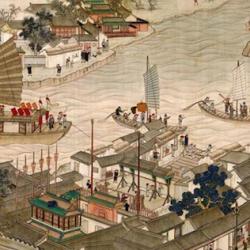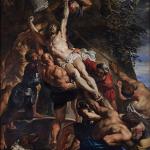Finding God in Ancient China by Chan Kai Thong and Charlene Fu is one of a number of studies attempting to show that the ancient Chinese worshiped the God of Noah and of Israel.
The authors assemble evidence from ancient writings, the Chinese language, ancient Chinese beliefs about God, and ancient Chinese rituals to make their case that “the God spoken of in the Bible and now worshipped throughout the world is the same God that our ancient [Chinese] forefathers revered” (8). They also offer what is surely a revisionist account of Chinese history as a history of apostasy from service to the true God to worship of the dragon (ch. 8).
Some of the correlations are fairly generic: Yahweh is revealed as holy, faithful, compassionate, etc., and the same is true of Shang Di, the high God of ancient China. Before dismissing those parallels as soon vague to be useful, we should ask whether Zeus or Baal had similar reputations.
Calling attention to the way biblical phrases are embedded in English (“turning the other cheek,” “washing my hands”), they suggest that the same process happened in ancient Chinese. For example, the ancient Chinese character jin, “to forbid,” is “formed by ‘two trees on top,” which they link to the trees of Eden (55). The ancient character for “blood” implies sacrifice since it “shows a drop of blood in a vessel used for sacrifice” (66). Similarly, the ancient form for “covenant” “shows a cup with a drop of blood” (67).
They spend a long chapter describing the Border Sacrifice at the Altar of Heaven, part of the temple complex of Beijing and another describing ancient Chinese procedures of covenant-making. Again, the parallels are sometimes general, and it would have been good if the authors had considered comparative material from other ancient civilizations, or some anthropological evidence.
Yet, the book’s evidence is compelling enough to raise a set of perennially fascinating questions about the similarities between geographically distant cultures in the ancient world. Current models of ancient history (on, for instance, the origins of sacrifice) don’t account for this phenomenon very well.
Published by Zondervan, the book’s goals are as much evangelistic as historical. It aims to assure Chinese that they don’t need to abandon their heritage, or become European, to become Christians. In becoming Christians, they might become more deeply Chinese.














